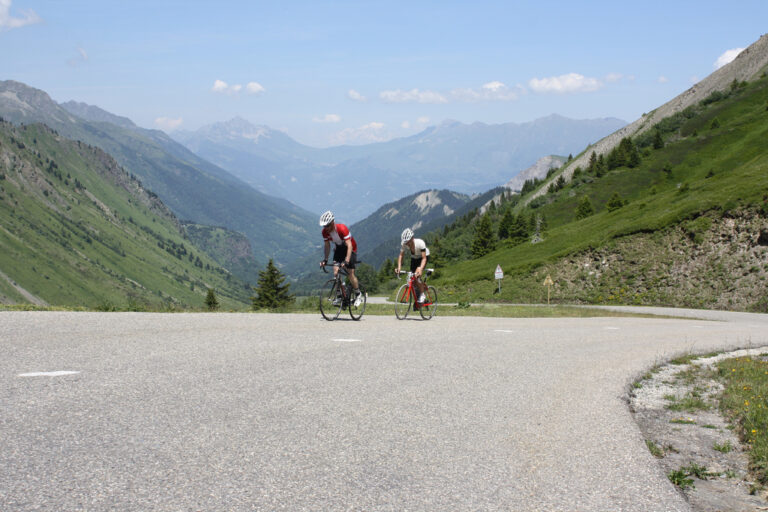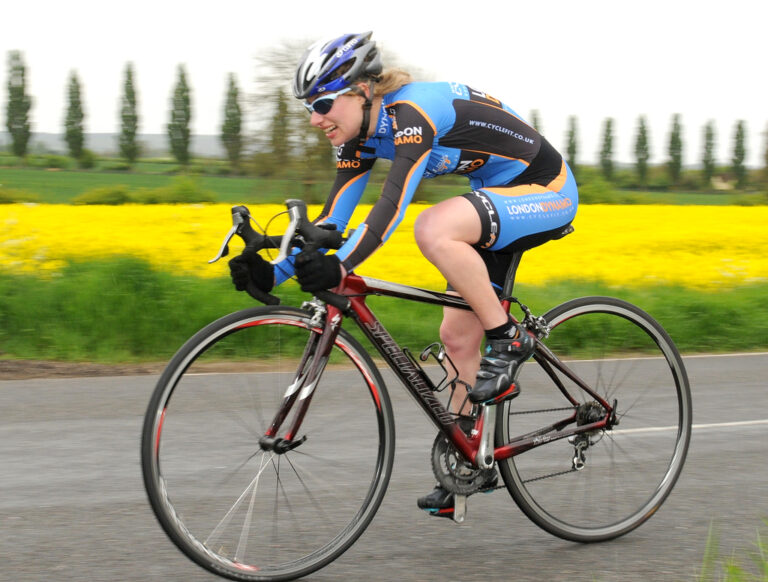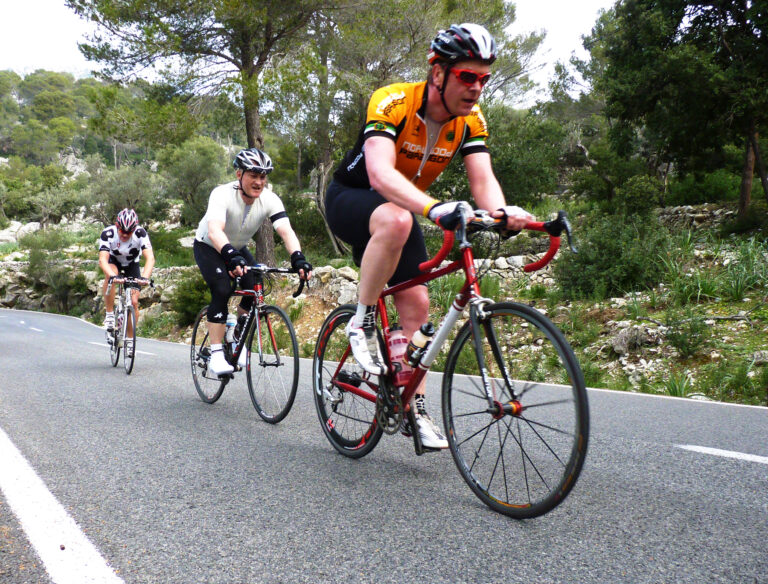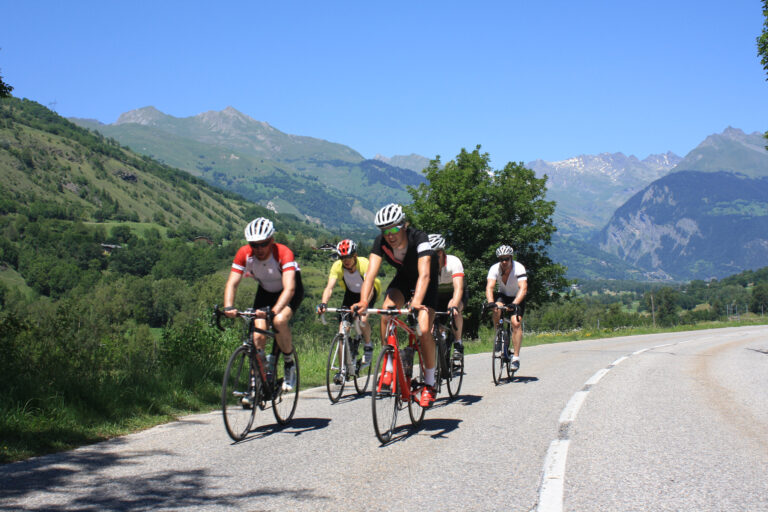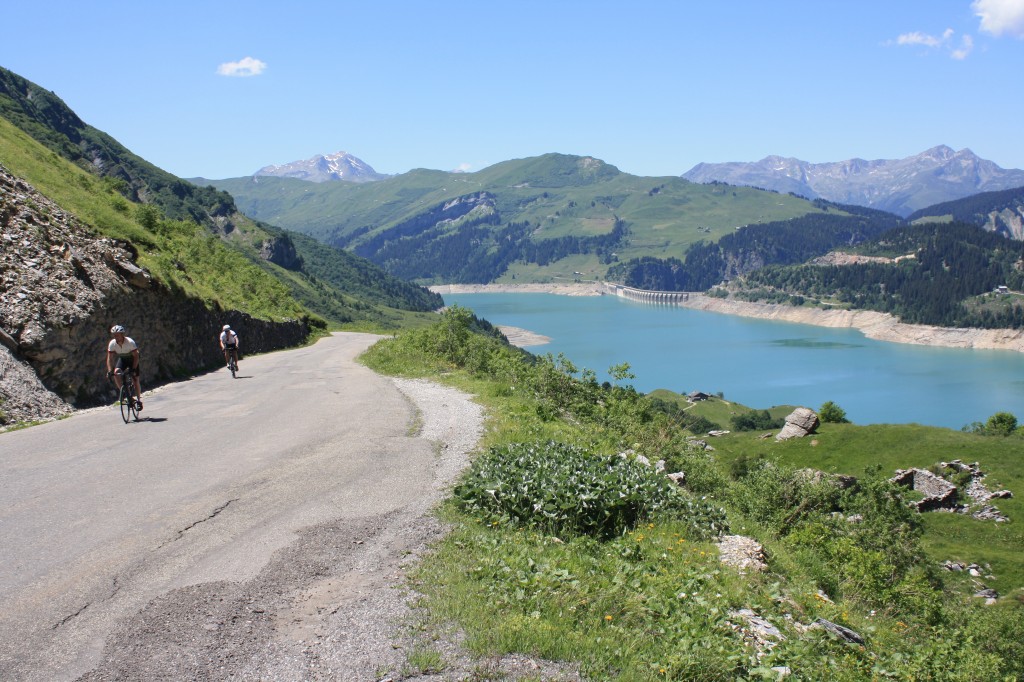
As we mentioned in the previous article, preparing for your first 100mile ride or cyclosportive can be a daunting task. But like all challenges, a good place to start is breaking it down into its component parts.
If you’re looking at completing your first sportive, the end result of riding 100 (or more) hilly miles can seem a distant dream and one that you have no idea of how to approach. A good place to start is by identifying the various component parts of what actually constitutes the event, enabling you to work on these specific areas with a much more measured approach.
The basic demands of all cycling events can be broken down into four categories: Physiological, Psychological, Technical and Tactical; and identifying how the demands of your event fits into these categories can greatly help you in preparation for it.
Clearly there’s not much point in training yourself for the event demands of a BMX racer if your goal is to complete a 100mile hilly sportive, so begin by breaking down the sportive into its specific demands.
Over the coming weeks we’ll be looking at each of these is some detail, and working on them will provide you with the tools needed to complete your first sportive.
Event demands of a 100mile sportive
- Physiological:
A) Endurance. Sportives are all about going the distance, so this is the cornerstone of your training. You can’t readily complete a sportive unless you can ride the distance. So, firstly, you need to increase the distance you can comfortably ride from where you currently are, to as close to the distance and intensity the event will demand as possible.
B) Nutrition. It’s no good having a good engine if you haven’t got the right fuel and the knowledge of how to use it. In order to ride for five hours or more good, nutrition will be an essential part of your training and event strategy.
C) Hill climbing. Sportive event organisers are renowned for offering the best possible experience of riding a bike in their local area. This basically means that, if there are big hills available, they’re going to ask you to ride up them. Repeatedly. Therefore the ability to ride hilly terrain and recover from the effort is an essential physiological demand for sportives.
- Psychological:
Sportives are all about time in the saddle, so a strong mental attitude is a pre-requisite for the event and its preparation. Long hours on the bike, often done ‘out of season’ when the weather is not at its best, demand high levels of commitment and motivational techniques to keep you going. The self-discipline to remain mentally focused while riding for prolonged periods at modest levels of intensity, particularly during the early stages of preparation as you build basic endurance, are key.
- Technical:
A) Hill climbing. As we mentioned above, this is a key physiological aspect of sportives. It’s also a technical one. Grinding big gears on the early climbs while feeling strong is going to rob you of energy later in the ride, so you need to learn how to climb efficiently with a faster cadence in lower gears.
B) Descending. Once up a hill, of course, there is only one way to go, and that’s down again. Descending is a technical skill that can save you a lot of time on a sportive – as well as save your life.
C) Group riding skills. Sportives are increasing in popularity all the time, which means even local, club-organised events now attract hundreds of like-minded riders. The big events in the UK see thousands of riders take the line while the established European big-hitters like the Etape or Nove Colli can see upwards of 10,000 riders competing. Good group-riding skills and bike handling is therefore essential for your safety and the safety of others. Working in groups with other riders can also save you a lot of time.
- Tactical:
A) Pacing. Whether you’re riding a sportive as a personal challenge and hoping just to conquer the course, treating it as an individual challenge against the clock or racing the other riders to be fastest finisher, pacing is an essential tactical element in completing the sportive to the best of your ability. It’s essential to know just how hard you can ride in order to complete the event. We’ve seen high category road-racers completely fall apart in sportives due to pacing themselves inadequately. Anyone who has ‘blown’ after 40 miles of a 100mile sportive will tell you it’s not an experience they’d want to repeat. So good pace judgment, developed in your training rides and correctly applied during your event, is essential.
B) Equipment: Not to be overlooked, you need the right tools in order to do the job. A bike not suited to the event will mean an uncomfortable (literally) experience and can be a showstopper. Likewise, a mechanical breakdown due to lack of preparation in the middle of a remote mountain range can be a very worrying experience. Equipment can also play a major part in your tactical approach to the ride. On-board computers can be pre-programmed with routes, distances, feed-station positions and elevation changes, all combining to help you plan and execute your ride strategy to the optimum.
Part 1: Going for Centuries
Part 3: Goal Setting
Part 4: Intensity
Part 5: Get in the Zone
Part 6: Performance Testing
Part 7: Creating a training plan
Part 8: Weekly training plans
Part 9: Be a better climber
About the author:
Huw Williams is a British Cycling Level 3 road and time trial coach. He has raced on and off road all over the world and completed all the major European sportives. He has written training and fitness articles for a wide number of UK and international cycling publications and websites and as head of La Fuga Performance, coaches a number of riders from enthusiastic novices to national standard racers.
Contact: [email protected]

